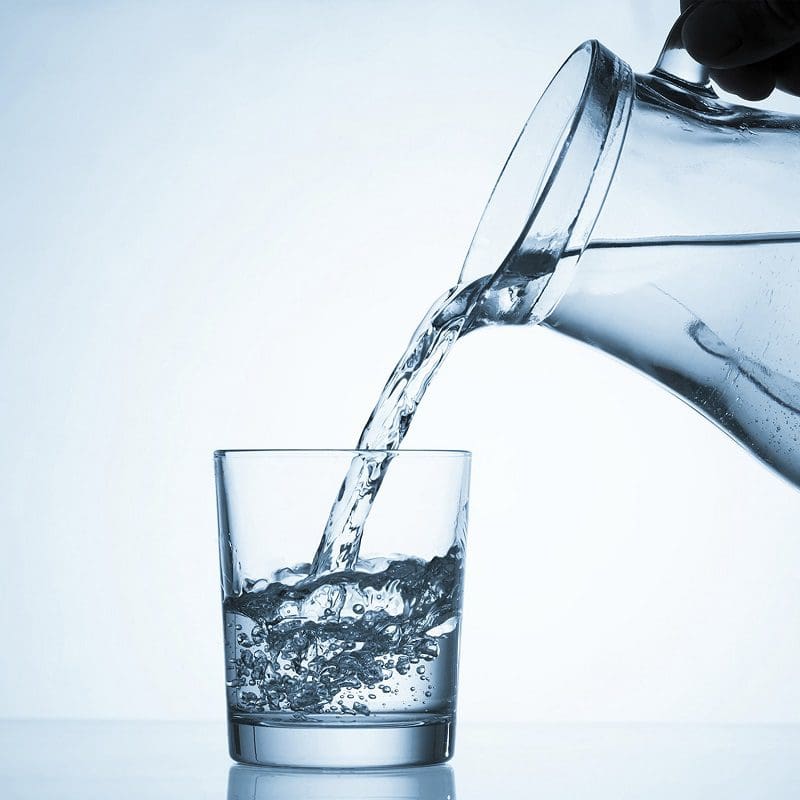Hydration: The Importance of fluid balance
Water is essential for life, and the human body cannot function properly without enough water. Some of the key functions of water in the body include:
- Regulating body temperature: When we are active, our bodies generate heat, and water helps to regulate our internal temperature by sweating.
- Lubricating joints: Water helps to keep the joints lubricated, which is crucial for preventing joint pain and reducing the risk of injury.
- Flushing out waste: Water helps to flush out waste from the body, which is important for keeping the kidneys functioning properly and reducing the risk of kidney stones.
- Aiding digestion: Water is essential for digesting food and absorbing nutrients.
- Transporting nutrients: Water is needed to transport essential nutrients and oxygen to all the cells in the body.
Water is essential for life, and the human body cannot function properly without enough water. Some of the key functions of water in the body include:
- Regulating body temperature: When we are active, our bodies generate heat, and water helps to regulate our internal temperature by sweating.
- Lubricating joints: Water helps to keep the joints lubricated, which is crucial for preventing joint pain and reducing the risk of injury.
- Flushing out waste: Water helps to flush out waste from the body, which is important for keeping the kidneys functioning properly and reducing the risk of kidney stones.
- Aiding digestion: Water is essential for digesting food and absorbing nutrients.
- Transporting nutrients: Water is needed to transport essential nutrients and oxygen to all the cells in the body.
Benefits
Staying hydrated has many benefits for the body, including:
- Improved physical performance: When the body is dehydrated, physical performance can be reduced, and fatigue can set in more quickly. Drinking enough water can help to improve energy levels and enhance physical performance.
- Better skin health: Water is essential for keeping the skin hydrated and healthy. When the body is dehydrated, skin can become dry, flaky, and wrinkles can be more noticeable.
- Improved mental clarity: Water is essential for maintaining good brain function, and staying hydrated can help to improve focus, concentration, and memory.
- Reduced risk of headaches: Dehydration is a common cause of headaches, and drinking enough water can help to prevent them.
- Better kidney function: As mentioned earlier, water is crucial for keeping the kidneys functioning properly and flushing out waste.
Risk
Not drinking enough water can have serious consequences for the body, including:
- Dehydration: The most obvious risk of not drinking enough water is dehydration. Symptoms of dehydration can include dry mouth, fatigue, dizziness, and confusion.
- Kidney damage: When the body is dehydrated, the kidneys have to work harder to remove waste, and this can increase the risk of kidney damage.
- Constipation: Water is essential for keeping the digestive system functioning properly, and a lack of water can lead to constipation.
- Increased risk of infections: When the body is dehydrated, the immune system can become weakened, increasing the risk of infections.
- Heart problems: Dehydration can cause the blood volume to decrease, which can put extra strain on the heart and increase the risk of heart problems.
Hydration and exercising
Hydration is crucial during exercise as it helps maintain blood flow, regulate body temperature, and prevent dehydration. The amount of water a person needs during exercise depends on factors such as the intensity of the activity, the duration of the exercise, and the individual’s body size and sweat rate. As a general guideline, athletes should aim to drink 17-20 ounces of water two to three hours before exercise and then continue to drink 7-10 ounces every 10-20 minutes during the activity. For longer workouts lasting more than an hour, sports drinks containing electrolytes may also be beneficial. It is important to note that thirst is not always an accurate indicator of hydration status, so it’s essential to drink water even if you don’t feel thirsty. Additionally, it’s important to avoid alcohol and caffeine before and during exercise, as these can increase dehydration.
Summary
In conclusion, hydration and fluid balance are essential aspects of maintaining good health and well-being. Drinking enough water is crucial for regulating body temperature, lubricating joints, flushing out waste, aiding digestion, and transporting nutrients. Staying hydrated has many benefits for the body, including improved physical performance, better skin health, improved mental clarity, reduced risk of headaches, and better kidney function. Not drinking enough water can have serious consequences for the body, including dehydration, kidney damage, constipation, increased risk of infections, and heart problems. Therefore, it is essential to make sure that you drink enough water every day to stay hydrated and maintain good health.
If you think it would be beneficial to discuss your nutrition and fluid intake with one of our highly qualified nutritionists then please contact us or make a booking online.



